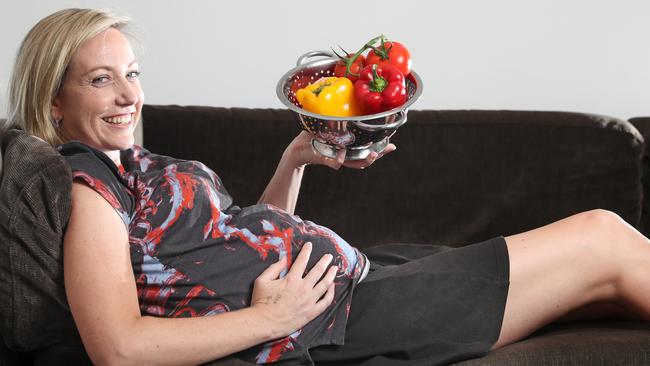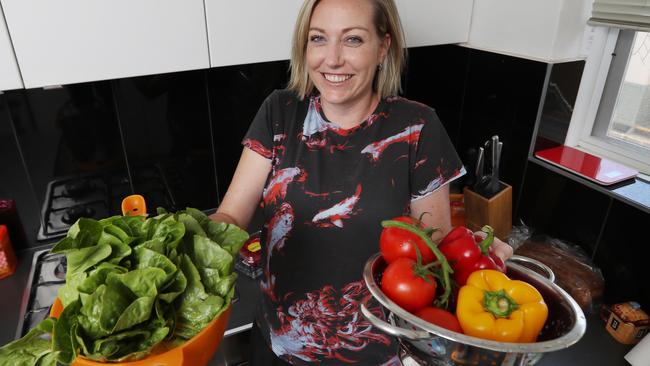Pregnant women could risk inadequate nutrition for fear of avoiding unsafe foods
MOST pregnant women lack knowledge about their dietary needs and may not be receiving the nutrients which best benefit their developing baby, new research has found.

VIC News
Don't miss out on the headlines from VIC News. Followed categories will be added to My News.
MOST pregnant women lack knowledge about their dietary needs and may not be receiving the nutrients which best benefit their developing baby, new research has found.
A study by the Royal Women’s Hospital found that many women are unnecessarily avoiding safe foods, not taking the right supplements or eating high-risk foods for listeria.
YOU’RE NOT CRAZY, BABY BRAIN IS A THING
But dietitians say it’s never too late during pregnancy to make healthy lifestyle changes.
They surveyed 202 pregnant women, doctors or midwives about their knowledge of pregnancy nutrition recommendations, with one-third further interviewed about their nutrition education experiences, diet changes, and barriers to healthy eating.
The study, published in the journal Women and Birth, found that most pregnant women knew about the need for folic acid to prevent spina bifida, to abstain from alcohol, and that they were at higher risk of food poisoning.
But study author and dietitian Dr Amelia Lee said there were many knowledge gaps such as energy needs, identifying foods that could harbour bacteria or be high in mercury, food sources of folate, and weight gain recommendations.
“It confirmed to me that the information we give women can be too general, and if they’re not sure what to eat, they can eliminate safe foods that are quite nutritious,” Dr Lee said.
“That lends itself to inadequate nutrition during pregnancy.
“Women know they can’t eat soft cheeses, but they were discarding all cheeses.
“A lot of women say they can’t eat tuna because of mercury, but tinned tuna is safe.”
And while clinicians were more knowledgeable than their patients surveyed, their lack of nutrition training and clinic time constraints saw them provide limited nutrition to women.

Dr Lee said the findings were important because poorer quality diets affected the health of mother and child, increasing the chance of premature birth, gestational diabetes and developing chronic conditions such as diabetes or heart disease later in life.
“It’s never too late in pregnancy to make health changes, because there are developmental milestones along the way,” she said.
DRINKING MUMS NEW TARGET OF CAMPAIGN
STILLBIRTH RISK ‘RED FLAG’ DISCOVERED
One of the first pregnancy-related internet searches Andrea May, who is 22 weeks pregnant with twins, made was to find out what type of cheese she could still eat.
After consulting Dr Lee and fact sheets on the hospital’s website, she was relieved to learn she could still enjoy a coffee or two a day, and keep eating tuna.
“It was a huge reassurance that I’m not putting my babies’ lives at risk,” Ms May said.
“You’re not pregnant many times in your life, so you want to get it right.”


